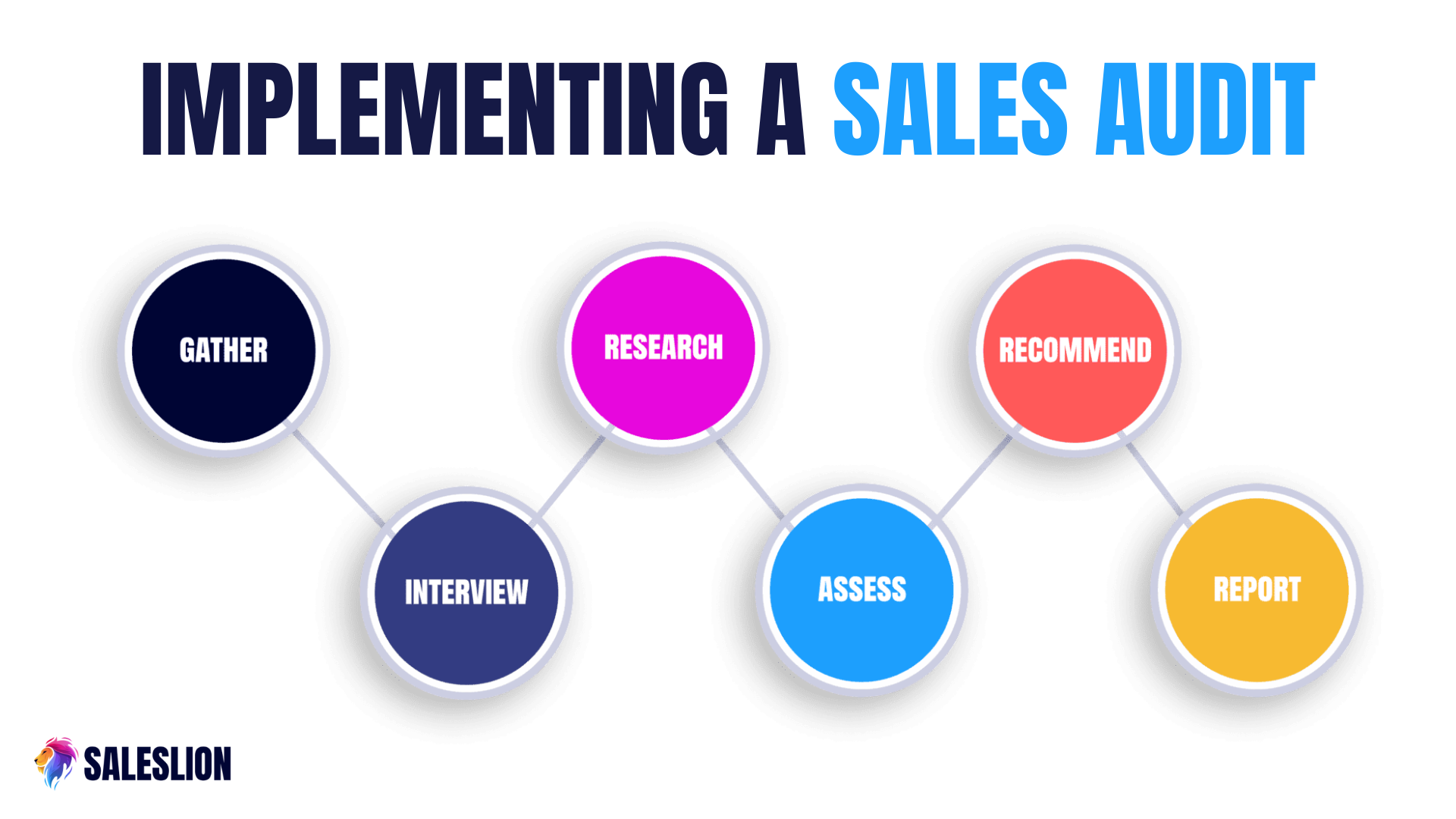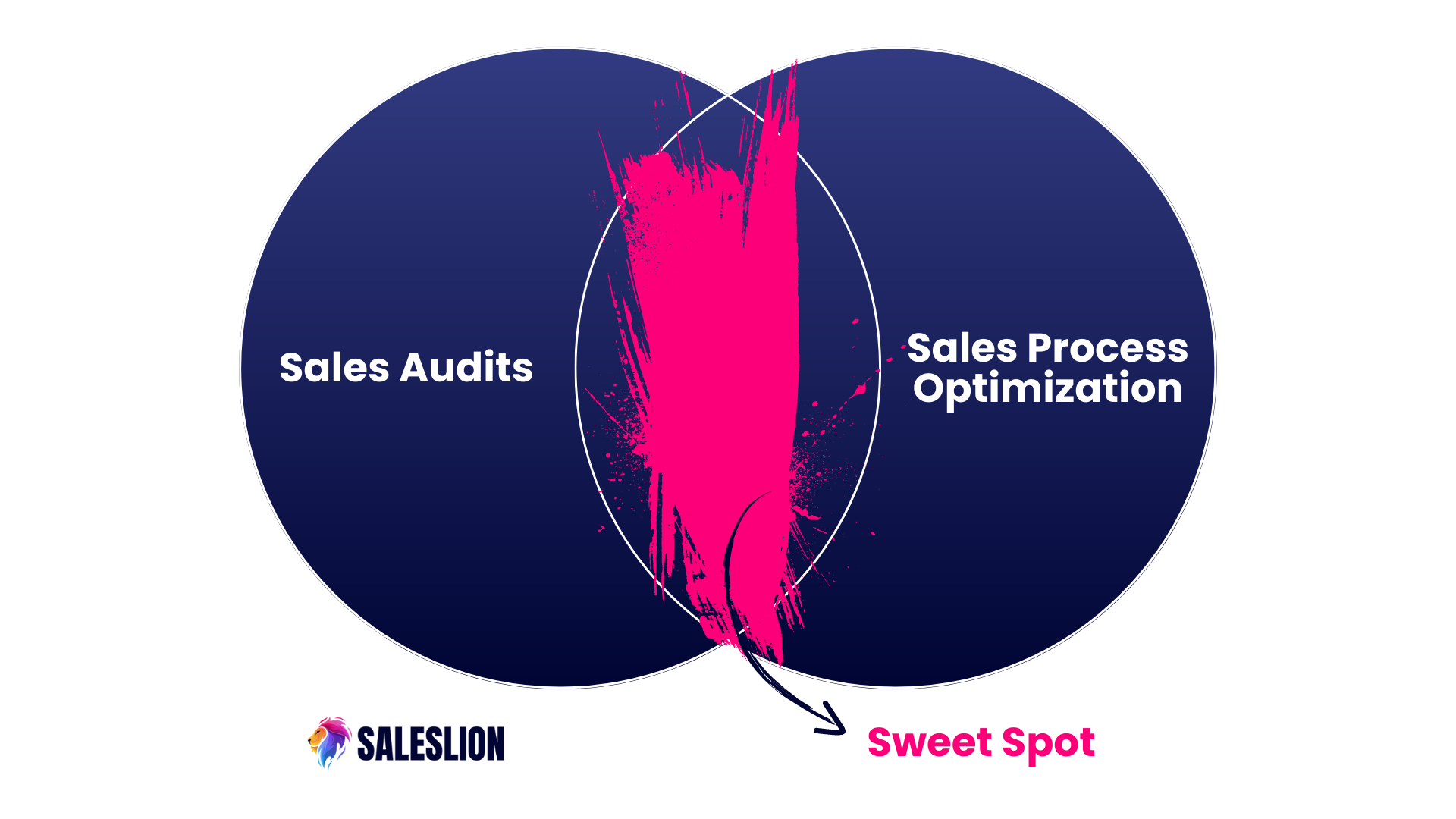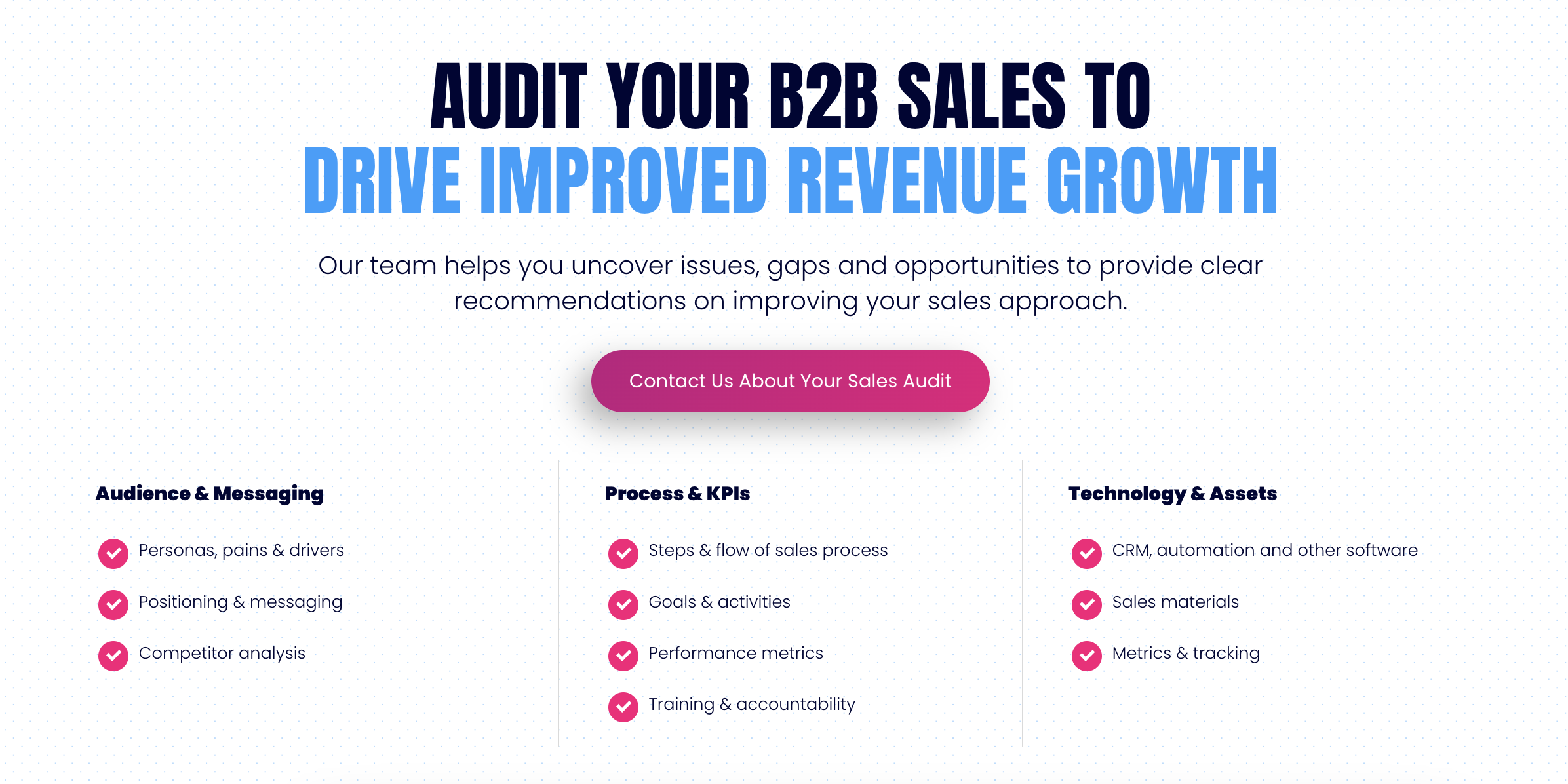What is a Sales Audit?

Unlocking the true potential of your sales strategy begins with a comprehensive sales audit.
Without tests, students would not be able to maximize valuable opportunities to receive feedback, set new goals, and boost their growth. And without B2B sales audits, sales teams would miss out on the same.
But before we go any further, what is a sales audit?
And why does it matter?
A sales audit is an evaluation and analysis of an organization's sales processes, strategies, and activities with the goal of identifying areas of improvement for future growth.
Additionally, by conducting regular evaluations, your B2B company can optimize sales strategies to drive better results through a frictionless sales process.
As articulated by this article, the purpose of a sales audit is to gain insights into the efficiency of sales efforts and to identify areas to enhance sales performance. And with frequent audits, sales teams can optimize their sales process and strategies to serve their customers better and drive more revenue.
In today’s article, we are going to be looking more closely at what a sales audit is and why your B2B company could benefit from it:
Mapping the Saleslion Sales Audit Process
B2B sales audits can be imagined to follow the process arc below.
These steps are going to vary greatly depending on the sales experts implementing the evaluation, the company using the audit, and the customers that they serve. But while the phases below might be Saleslion’s specific, most B2B sales audits will follow a similar path.

Gather
Gathering sales KPIs that your company wants to track before conducting the actual sales audit is crucial.
Sales KPIs help prioritize relevant metrics, set achievable goals, and evaluate performance accurately. They enable data-driven decision-making, facilitate comparison with industry standards, and aid resource allocation for effective improvements.
By comprehending sales KPIs, the audit becomes a process of continuous improvement, leading to long-term growth and success.
Interview
Engaging in customer interviews involves direct interaction with current clients to gather valuable insights about their purchasing journey, satisfaction levels, challenges, and overall satisfaction with the sales process.
Such interviews offer valuable qualitative feedback, enabling the identification of opportunities for enhancing your sales process to align more effectively with customer needs and expectations.
Research
Market research involves gathering data and analyzing industry trends, market dynamics, competitor analysis, and customer preferences. This comprehensive approach offers valuable insights into market conditions, customer behavior, and the competitive landscape.
By conducting market research, your sales team can uncover opportunities and challenges that impact sales performance, empowering your company to make well-informed decisions and adapt sales strategies accordingly.
Assess
Conducting sales team evaluations entails thoroughly assessing the performance, skills, and capabilities of individual sales members and the overall team dynamics.
Through these evaluations, you can pinpoint areas that may benefit from additional training, coaching, or reorganization, with the ultimate goal of enhancing your sales team's effectiveness and performance.
Additionally, when you assess B2B sales processes various factors are considered, including the sales process's efficiency, effectiveness, and consistency.
Recommend
Based on the sales audit findings, concrete recommendations and improvements are formulated as specific actions and strategies.
These recommendations target weaknesses, inefficiencies, or gaps identified in the sales process, offering actionable steps to drive improvement.
They also encompass suggestions for process optimization, implementing training programs, adopting new technologies, enhancing sales collateral, and adjusting sales messaging and positioning.
Report
The completed report of findings is a comprehensive document that consolidates results and analysis from all aspects of the sales audit, offering a detailed overview of identified strengths, weaknesses, and opportunities.
Typically, the report comprises a summary, an overview of the methodology, key findings and insights, data and feedback analysis, and improvement recommendations.
This finalized report serves as a valuable resource for key decision-makers in your B2B company, enabling them to implement changes and monitor progress over time effectively.
How Sales Process Optimization and Sales Audits Go Hand-In-Hand
The purpose of sales audits is to identify current constraints in a company’s B2B sales strategies and receive feedback on ways to eliminate friction in their sales process.
Because of this, audits are an increasingly important aspect of sales process optimization.
So, what is sales process optimization?
Sales process optimization is the approach taken to enhance current processes and strategies to optimize the customer experience and reduce costs while increasing close rates to generate higher revenue and profits.
An article about how to optimize the sales process of B2B companies, perfectly articulates that, “sales process optimization is about improving the sales cycle to drive better results.”
From this, it is clear that both sales process optimization and sales audits are two interrelated aspects of improving your company's sales performance.
A sales audit is the first step, providing a comprehensive evaluation of your current sales operations. It assesses the effectiveness of the existing sales process, analyzes the sales team's performance, and reviews key performance metrics. The goal of an audit is to identify strengths, weaknesses, and areas for improvement in your sales operations.
Once you've conducted a sales audit and identified areas for improvement, the next step is sales process optimization. This involves refining your sales procedures based on the insights gained from the audit. This could mean streamlining workflows, implementing new sales strategies, retraining your sales team, or adopting new sales technologies.

In essence, the combination of sales audits and sales process optimization is the place you want to be. By working hand-in-hand, these two processes can help you significantly improve your sales performance, enhance customer satisfaction, and boost your bottom line.
Why Should You Implement a Sales Audit?
Sales audits are incredibly important aspects of the health of your sales reps and their productivity.
Drive Results With Sales Audits
One of the primary reasons why you should implement an audit in your B2B company is that it will help you drive results faster and more effectively.
By leveraging sales process optimization and sales audits, you can increase your ROI and conversions, save resources, and improve your sales strategies at a renewed level.
When expert sales consultants audit your process, they will be able to gather a list of blind spots and areas for improvement. This typically involves a thorough review of different stages in the sales funnel. And when your B2B sales team gains access to these insights, they can fine-tune their operations to enhance their efforts and ultimately boost ROI.
Resources are also saved by implementing a sales process audit by optimizing sales efforts so that more revenue can be generated with less overall effort.
And finally, by evaluating previous results and sales tactics, a sales audit can help your team pinpoint areas for improvement in the sales strategy. Audits are instrumental in aligning sales tactics with your B2B company's broader goals, ensuring all efforts are coordinated and focused in a common direction.
The Benefits of an Outsider’s Opinion
Additionally, it can be extremely helpful to implement a sales audit to get an outside perspective on your sales process.
The analysis from sales audits can be highly advantageous for B2B businesses as it's often challenging for them to identify their own internal shortcomings due to familiarity with their existing, yet inefficient, systems and methods.
However, external viewpoints regarding B2B sales process optimization present a wide range of advantages for businesses aiming to boost their sales performance.
By collaborating with a third-party expert, your organization can tap into novel perspectives and creative strategies that may be missed by in-house teams. This unbiased perspective can help pinpoint oversights, question historical practices, and reveal the hidden potential for growth.
Furthermore, external auditors bring industry-specific expertise, established best practices, and experience from serving diverse customers, equipping them to offer customized solutions that yield tangible outcomes.
How Saleslion Can Help You Boost Conversions
At Saleslion, our team of experts offers both sales strategy consulting and sales audits to assist your B2B company with your sales process optimization.

The Saleslion sales audit examines three primary areas of impact within your sales process, sales teams, and sales reps: audience and messaging, performance and KPIs, and technology and assets.
While examining audience and messaging, we typically analyze buyer personas, brand positioning, and competitors to get a better understanding of how to optimize your messaging.
For performance and KPIs, the Saleslion team uncovers the steps and flow of your sales process, goals and activities, your performance metrics, and the training of your sales team to ensure your sales process is maximized to its fullest potential.
And finally, we examine your sales technology like digital sales rooms and automation software, and other assets like data analytics platforms to help you stay at the top of your game.
Ultimately, this audit can be used by companies of all sizes looking to optimize their sales.
If you are looking to drive increased revenue growth and improve your sales process, reach out to us to talk about a sales audit for your company!
Ready to reinvent your sales process and tools?
One quick call and we'll share our approach - no pressure.
Schedule your demo